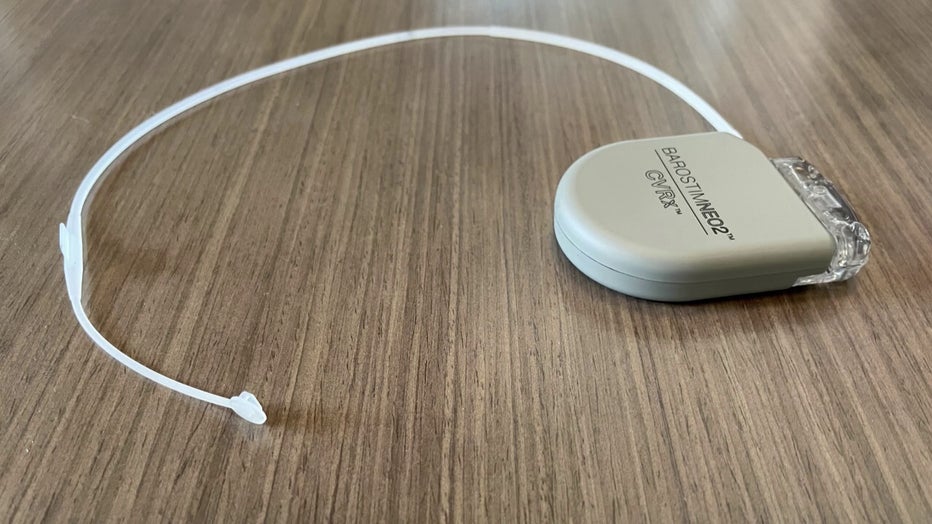Medical device that treats heart failure is used on first MN patients
New Minnesota heart treatment procedure being used
Minnesota’s Allina Health's Abbott Northwestern Hospital is the first center in the state to try a new medical device that helps treat heart failure.
MINNEAPOLIS (FOX 9) - For the first time, a new medical device that helps treat heart failure is being used in Minnesota.
Allina Health's Abbott Northwestern Hospital is the first center in the state to try the therapy, and health officials said it's already leading to patients no longer feeling as weak or tired.
Jim Bennett is used to an active lifestyle, spending time on the water or with his grandchildren at his 3.5-acre home in Brainerd. But over the last three years, he suffered three heart attacks, leading to congestive heart failure.
"There was not a whole lot I could do anymore except sit in the chair and get up and walk to the bathroom," Bennett told FOX 9.
Then, his cardiologist, Dr. Peter Eckman, told him about a medical device that helps treat heart failure called Barostim.
"He said, ‘It's new, and it's never been done in Minnesota,’" Bennett said.
The procedure, which is similar to having a pacemaker implanted, is quick, and it's designed to help people with weak hearts remain asymptomatic.

(FOX 9)
"We've been aware of it for a while, and when it was becoming available, we said, ‘this is something we want to get to our patients,’" said Eckman, a heart failure cardiologist at the Minneapolis Heart Institute.
Dr. Eckman said Bennett was the first patient in Minnesota to have the procedure done and because medical professionals saw success with him last summer, three more patients with weak hearts have since had the device implanted.
"People with a heart that doesn't squeeze well who remain symptomatic despite medications is probably the best way to describe who would be good candidates," Dr. Eckman said. "The device stimulates a nerve in your carotid artery, which affects your brain, which affects your heart."
The goal is to help patients with heart failure be less breathless and less fatigued, thereby improving their quality of life.
As for Bennett, he said being the first in the state has paid off. He's back to mowing the lawn, spending time with family and being able to do the things he loves.
"I pretty much can do anything I set my mind to, as long as I don't overdo it," he said. "My life has improved almost as good as it was before I had these heart attacks."
Dr. Eckman says one of the obstacles is that not all insurance companies currently cover this procedure. Even though the device received FDA approval in 2019, some insurers want more evidence of its effectiveness before they will cover it.

